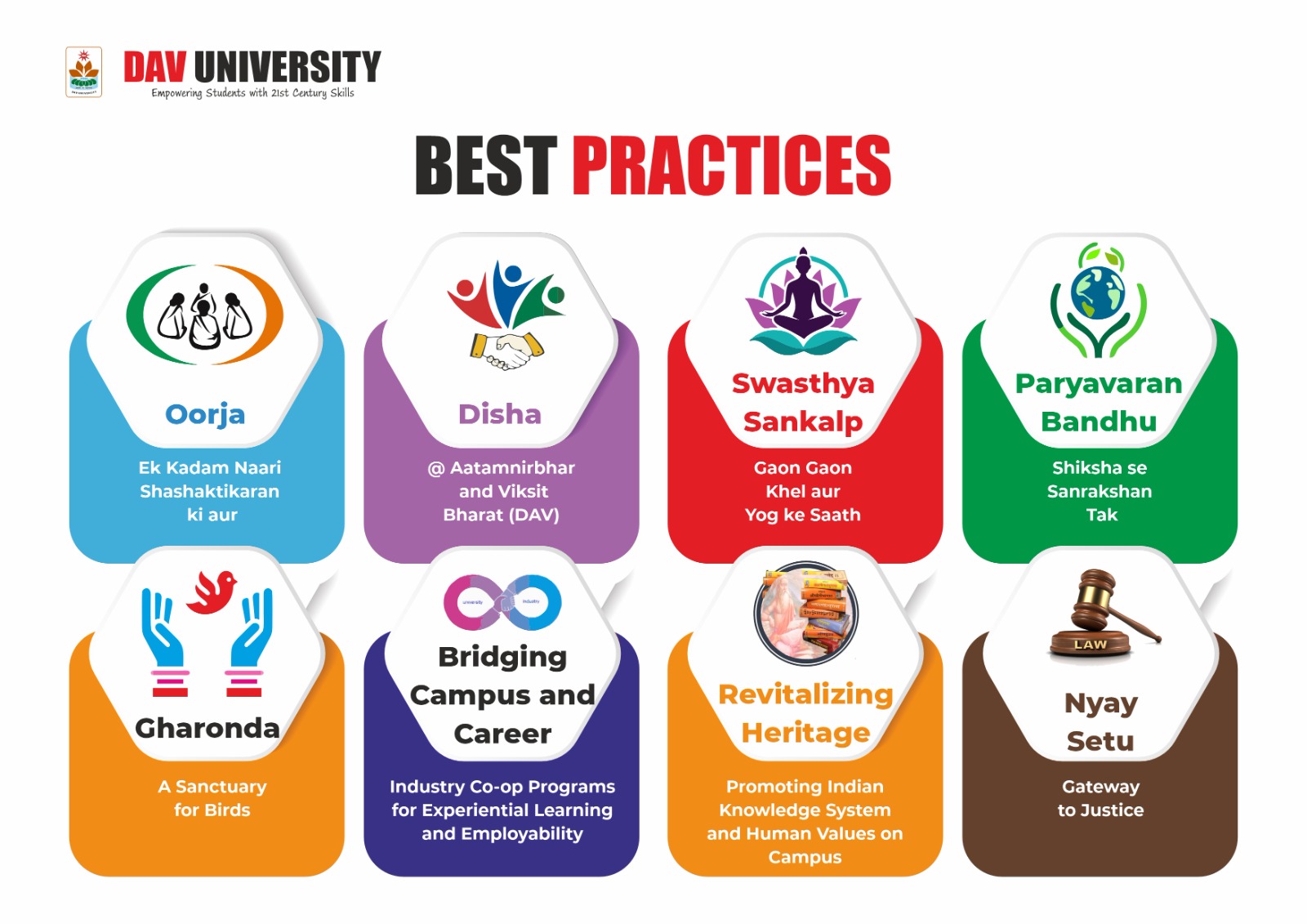
1.Title of the Practice: Oorja- Ek Kadam Naari Sasahaktikaran ki aur
Objectives of the Practice:
- To empower women in local communities by providing them with skill based training and opportunities for economic independence.
- To promote sustainable livelihoods and entrepreneurship among women through self-help groups.
- To enhance the socio-economic status of women and their families in adopted villages.
Context:
In many rural areas, women face significant socio-economic challenges, including limited access to education, employment opportunities, and financial resources. Recognizing the importance of addressing these issues, DAV University has undertaken initiatives to empower women in its adopted villages. These initiatives aim to provide women with the skills, resources, and support they need to become economically self-reliant and active participants in their communities' development.
Practice:
Established 3 Women Self-Help Groups in Village Karari, to train women in various income-generating activities viz Pickle Making, Squash Making, Jam Making, and Cloth Bag Making.
Facilitated the acquisition of a Cold Press Oil Extraction Machine through the generous contribution of the ICICI Foundation. This machine enables women to extract cold-pressed mustard oil and coconut oil, utilizing by-products for fertilizer and sweets.
Provide Assistance in selling the products prepared by the Women Self-Help Groups, by setting up a Sale Cum Exhibition Counter at the University’s reception area, providing visibility and accessibility to their products.
Facilitated the Registration of Women Self-Help Groups with the Punjab State Rural Livelihood Mission (PSRLM), to ensure the necessary support and recognition from
government.
Assisted these groups in obtaining FSSAI License, crucial for legitimate sale of their food products.
Initiated Entrepreneurship Assistance Programmes in collaboration with ICICI Foundation in Village Karari, Nussi, and Sarmastpur to equip women with the skills and knowledge needed to start and manage their businesses effectively.
Conducts a 5-day training on "Value Addition to Summer Crops for Preservation," providing women with techniques to enhance the shelf life and marketability of summer crops.
Training on Mushroom Cultivation to diversify their skill set and to enable them to explore new avenues of Income Generation.
Evidence of Success:
- Registration of 30 Women in the Self-Help Groups
- Counselling of around 300 women under the Entrepreneurship Assistance Programmes
- Positive Feedback and Testimonials from women participants regarding Skill Development and Empowerment.
- Improved Socio-Economic Status of participating women and their families.
- Support from external organizations, such as the ICICI foundation, highlighting the success and impact of the initiatives.
- Obtained FSSAI license enables the women to sell their products legally and ensures product quality and safety standards.
- Participation in Exhibitions organized by various government and non-government bodies further expands market reach and visibility of women's products.
Problems Encountered and Resources Required:
Challenges:
- Initial resistance or skepticism from community members regarding the effectiveness and sustainability of the initiatives.
- Limited access to markets and distribution channels.
- Technical difficulties or maintenance issues with the cold press oil extraction machine.
Resources Required:
- At least 5-6 training and capacity-building programs for women participants in a year.
- Financial support of atleast Rs 2-3 lacs per annum for the acquisition and maintenance of equipment and machinery.
- Marketing and branding assistance for promoting their products.
- Collaboration with local authorities and organizations for infrastructure and logistical support.
- Monitoring and evaluation mechanisms to assess the impact and effectiveness of the initiatives.
Notes:
- Continuous engagement with stakeholders is crucial for the sustainability and success of the programs.
- The University should explore opportunities for scaling up and replicating successful practices in other communities and regions.

Cloth Bag Training

EAP in Village Karari
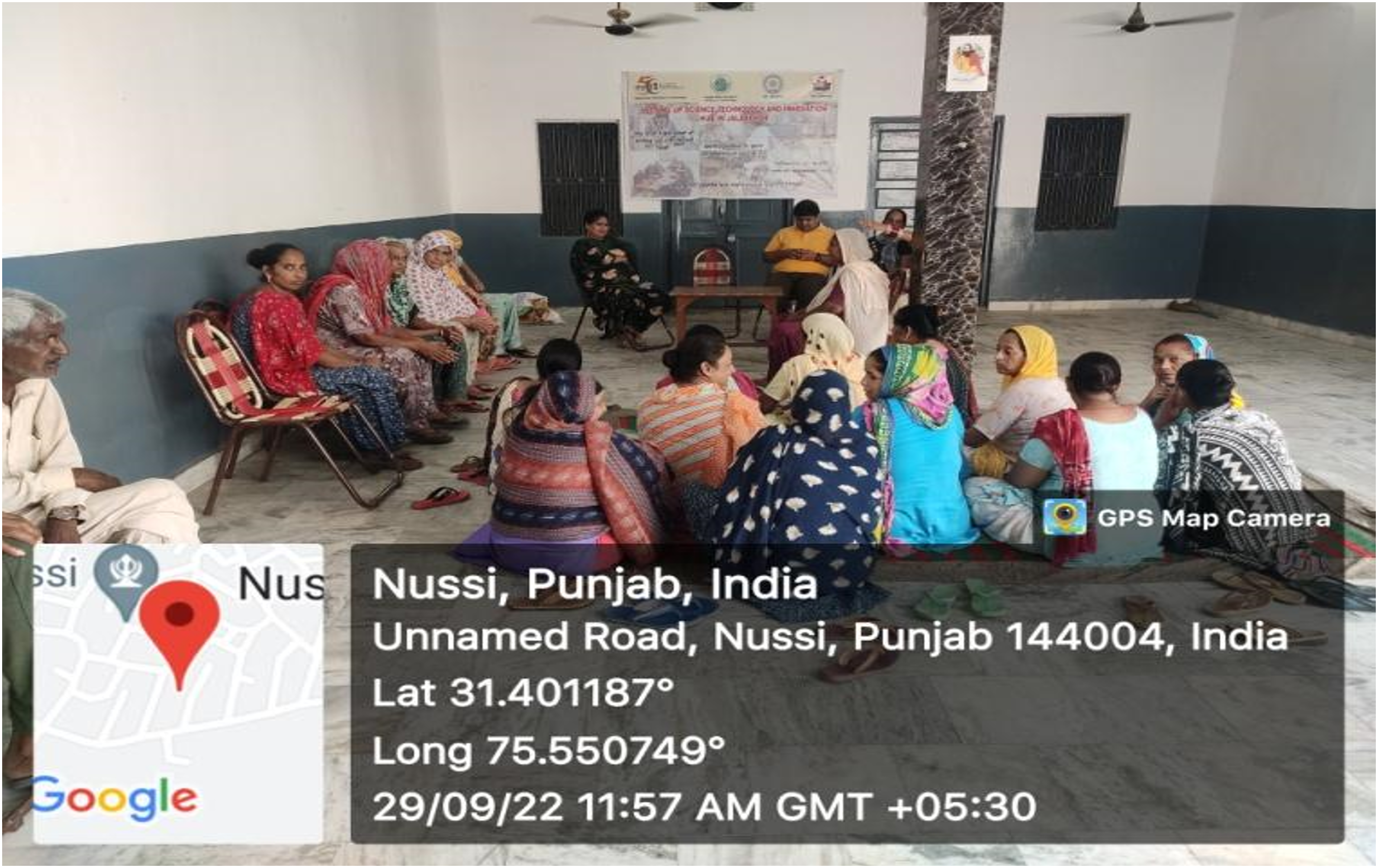
EAP in Village Nussi

EAP in Village Saramstpur
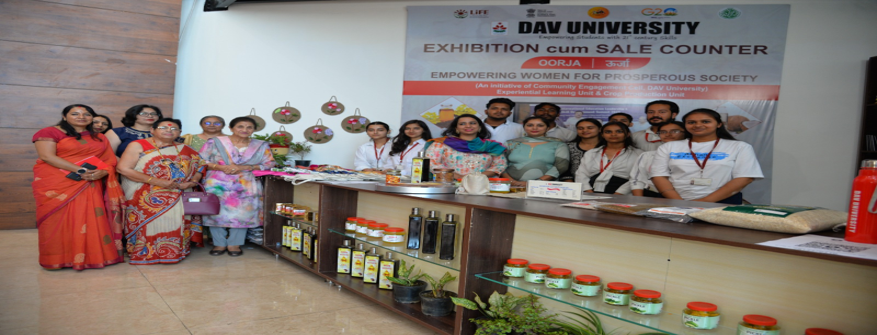
Exhibition-cum-Sale Counter for selling the products made by SHG
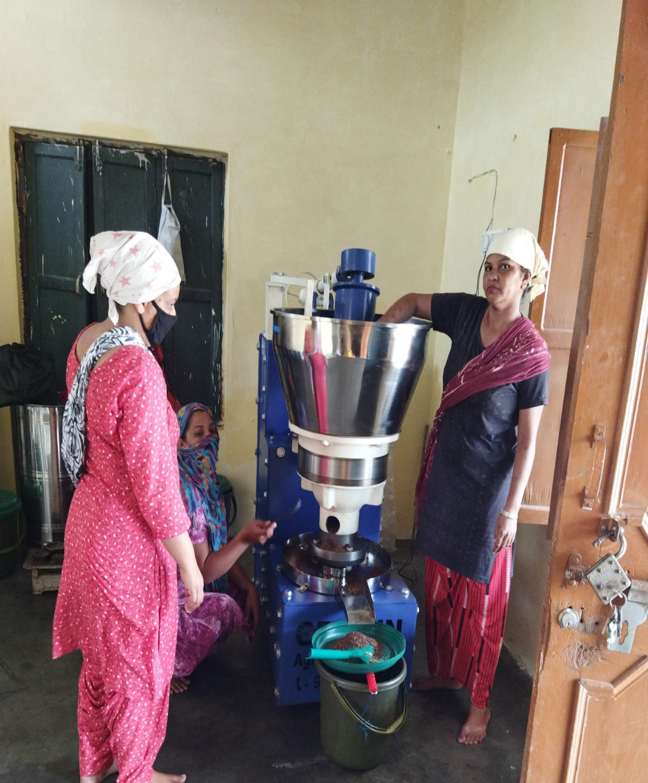
Extraction of Cold Pressed Oil by SHG Women
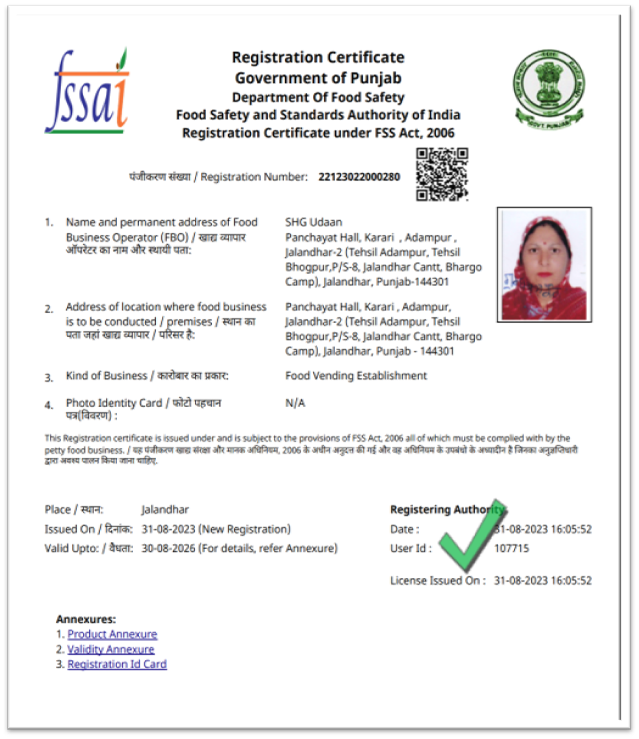
FSSAI licence to cell products made by SHG women
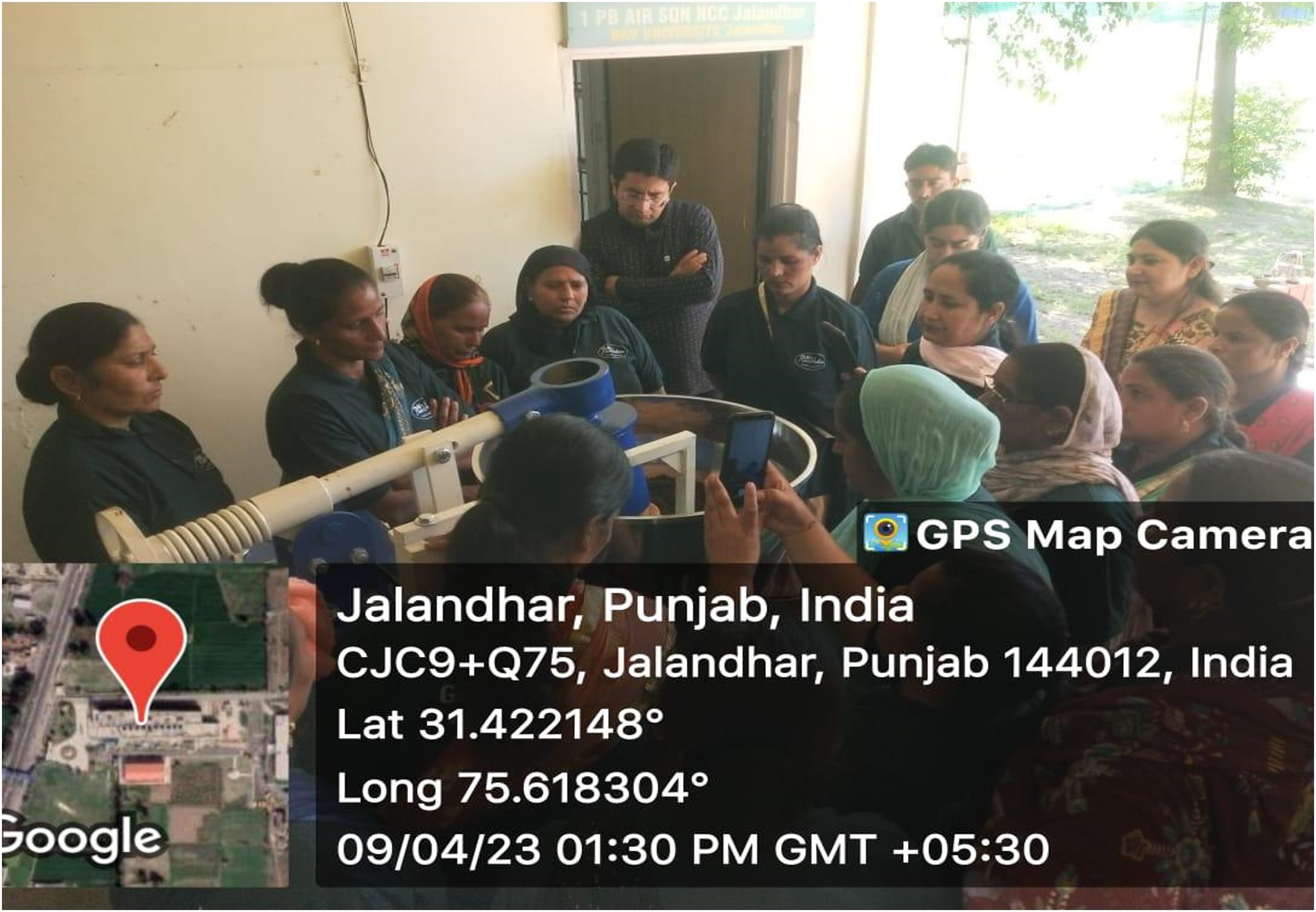
Training on Extraction of Cold Pressed Oil
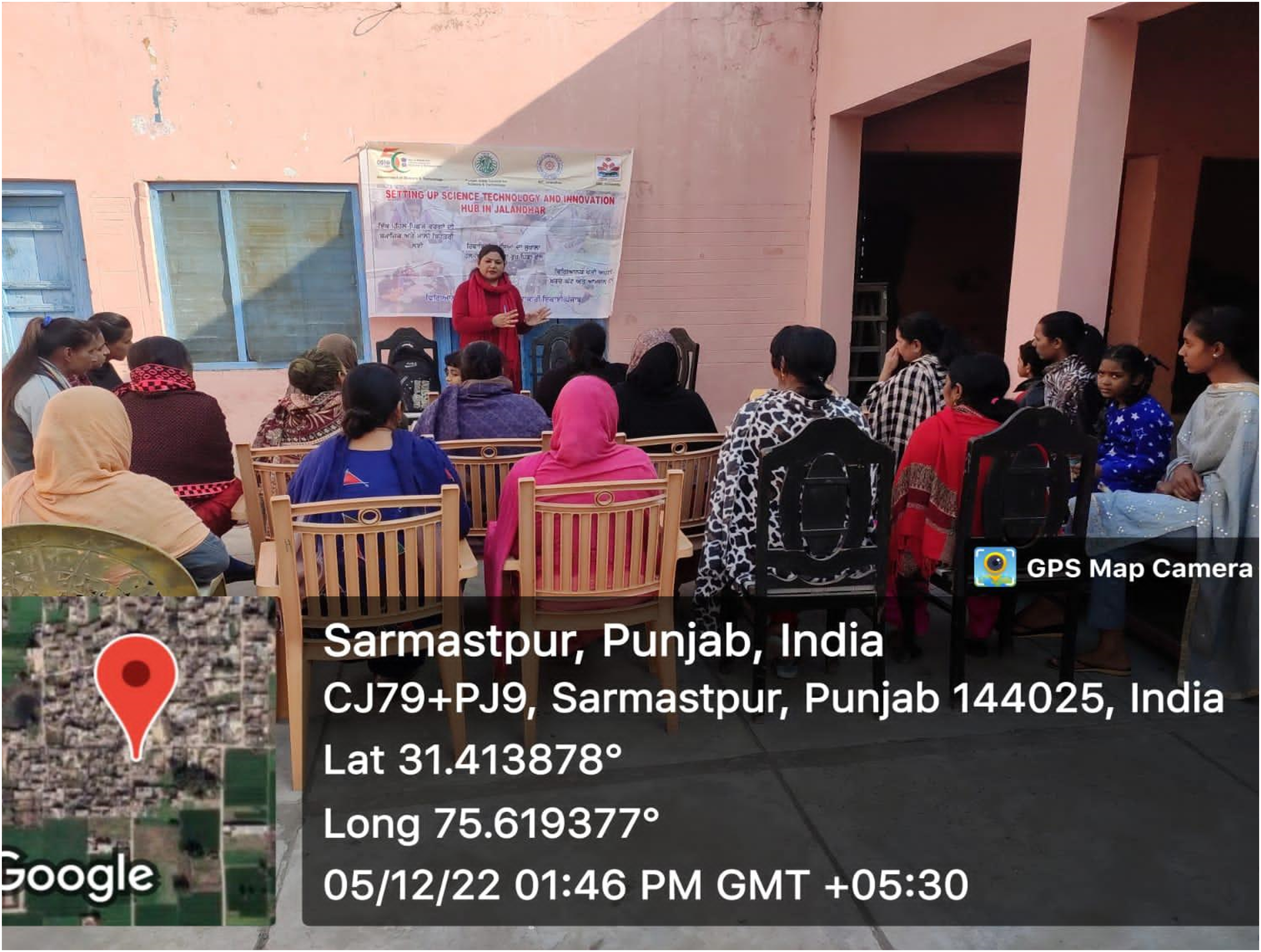
Training on Mushroom Cultivation

Workshop on Value Addition of Seasonal Fruits and Vegetables
2.Title of the Practice: Disha @ Aatamnirbhar and Viksit Bharat (DAV)
Objectives of the Practice:
- To address economic disparities in education and provide financial support to financially disadvantaged students.
- To empower students to sustain their education by creating and selling products through an Exhibition-cum-sale counter.
- To promote entrepreneurship and work ethics among students.
Context:
Economic barriers significantly hinder access to higher education, especially for Financially Disadvantaged Students. Recognizing this challenge, DAV University initiated the Disha @ Aatamnirbhar and Viksit Bharat (DAV) Program, aligned with the broader goals of the Aatmanirbhar Bharat mission, which encourages self-reliance and entrepreneurship.
Aims to alleviate the financial burden on students by offering a range of work and entrepreneurial opportunities within the University
Practice:
- Work Opportunities: Students are employed for various tasks (e.g., admissions, content creation) to support their education and earn an income, aligning with the push for local employment.
- Compensation: Based on hours worked, providing non-creative students practical work experience.
- Exhibition-Cum-Sale Counter: Inspired by Aatmanirbhar Bharat, this on-campus marketplace lets students create and sell products, gaining business skills, entrepreneurial experience, and income.
- Agricultural Plots: Third and final-year Agricultural Sciences students use University plots to cultivate crops, sell produce, and gain hands-on experience, supporting agricultural self-sufficiency and rural development.
Evidence of Success:
- Beneficiary Count: Approximately 1,400 students have benefited.
- Entrepreneurial Skills: Students involved in the Exhibition-cum-Sale Counter developed skills and work ethics aligned with Aatmanirbhar Bharat.
- Agricultural Experience: B.Sc (Hons.) Agriculture students gained practical experience and financial gains, supporting agricultural self-sufficiency.
- Increased Engagement: Higher student participation in University functions, fostering a self-sufficient and developed campus community.
Problems Encountered and Resources Required:
- Challenges:
- Limited resources for Exhibition-cum-Sale Counter infrastructure.
- Balancing academic workload with work-based activities.
- Fair distribution of work opportunities and earnings.
- Additional resources and coordination needed for crop cultivation.
- Resources Required:
- Financial support for Exhibition-cum-Sale Counter infrastructure, supplies, and marketing.
- Training in entrepreneurship, financial literacy, and business management.
- Support for crop cultivation, including land preparation, seeds, and tools.
- Collaboration with local businesses and alumni for market expansion.
- Monitoring and evaluation mechanisms to assess program effectiveness.
Notes:
- The program emphasizes inclusivity, transparency, and sustainability.
- Collaboration with faculty, staff, and student organizations is essential for providing mentorship and mobilizing resources.
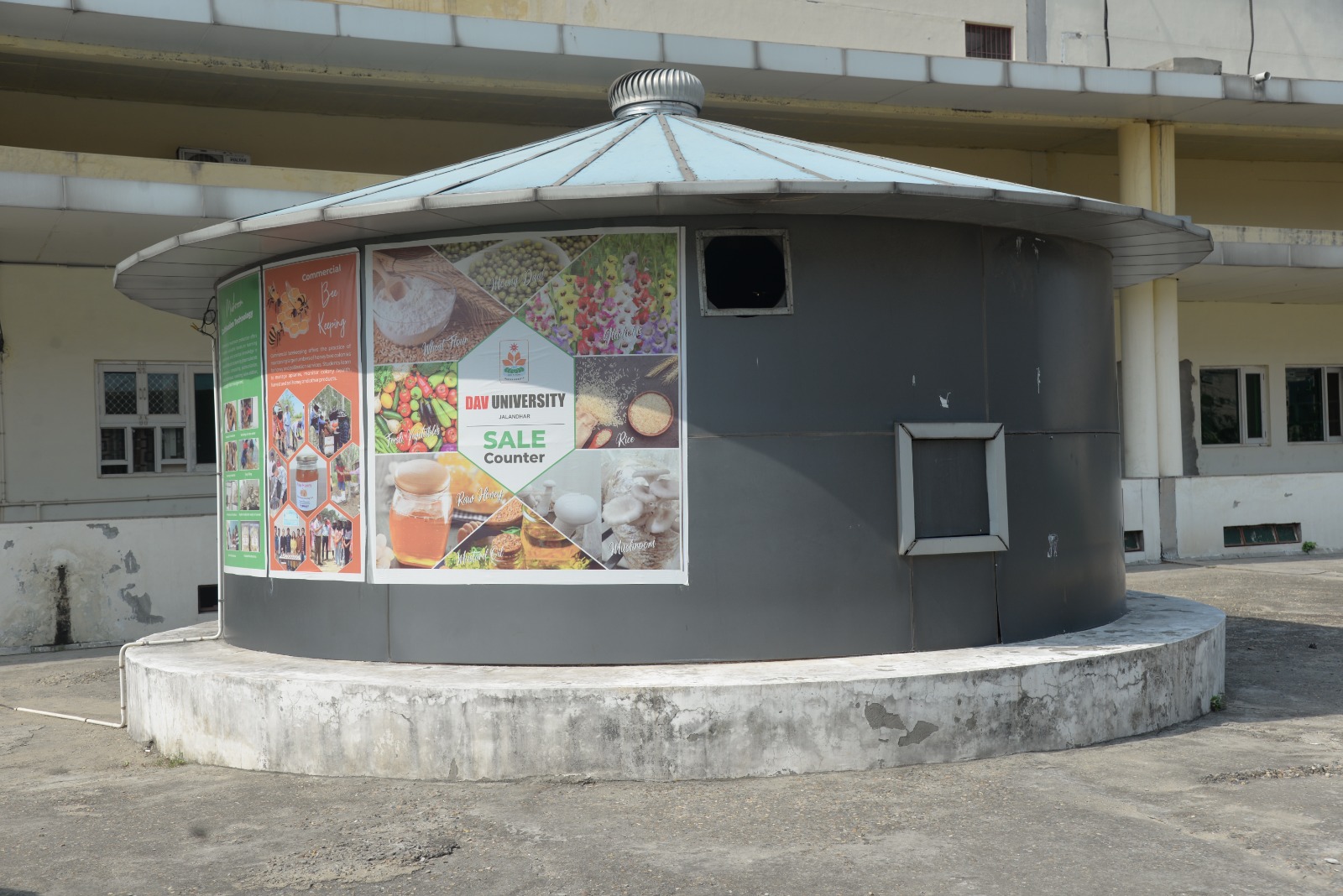
sale counter for selling products prepared by students
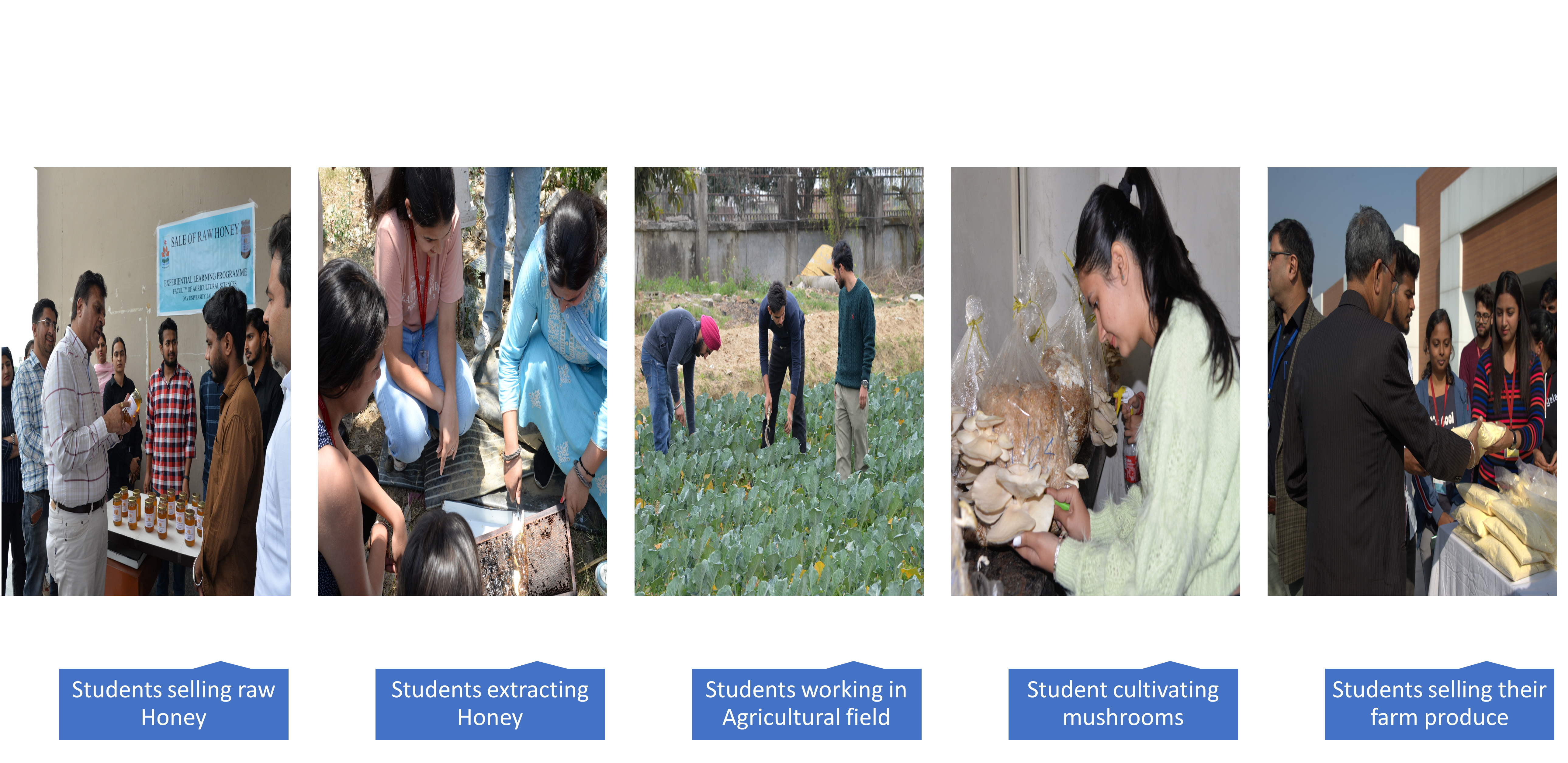
Students Cultivating Mushroom
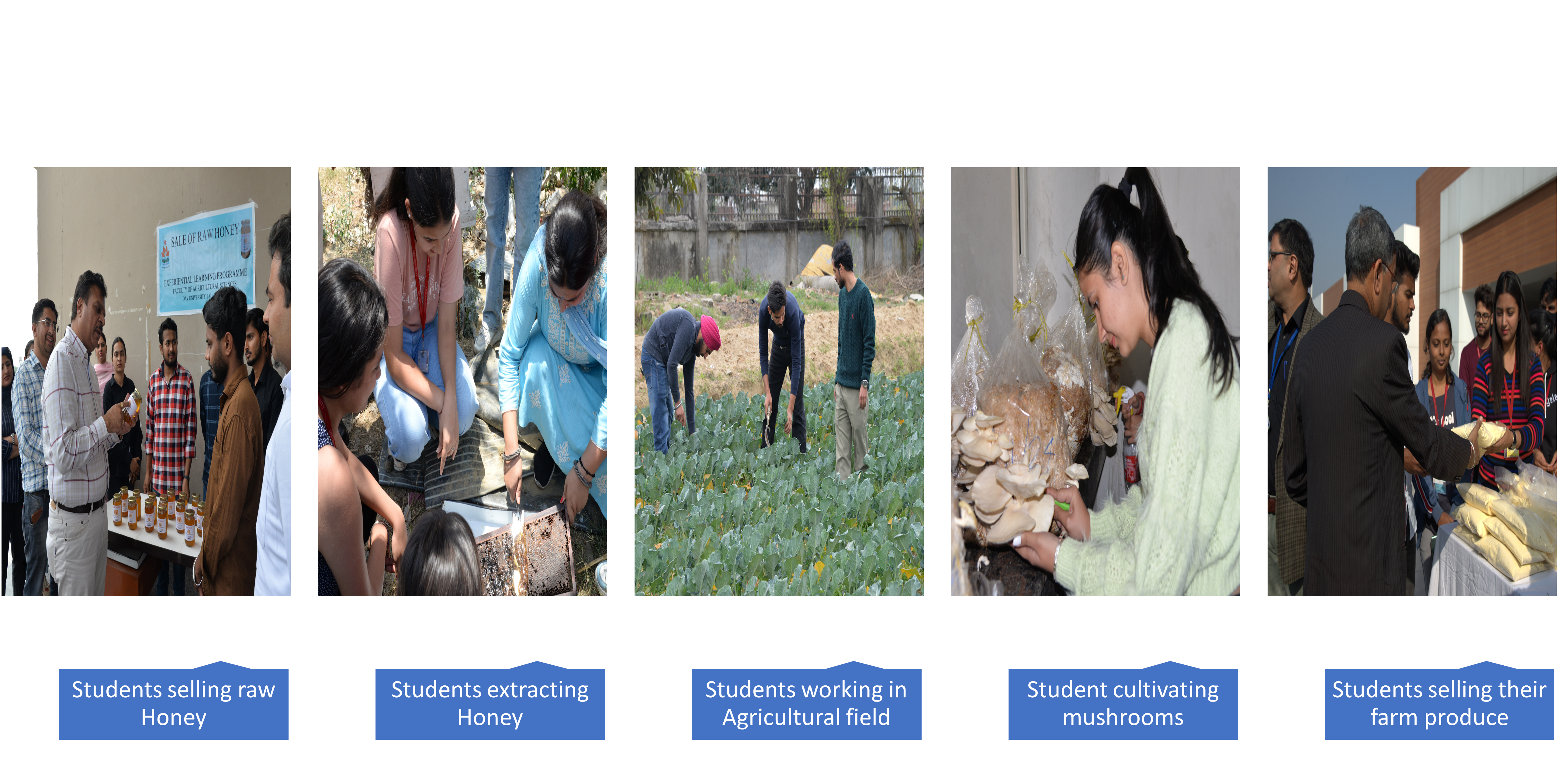
Students extracting Honey
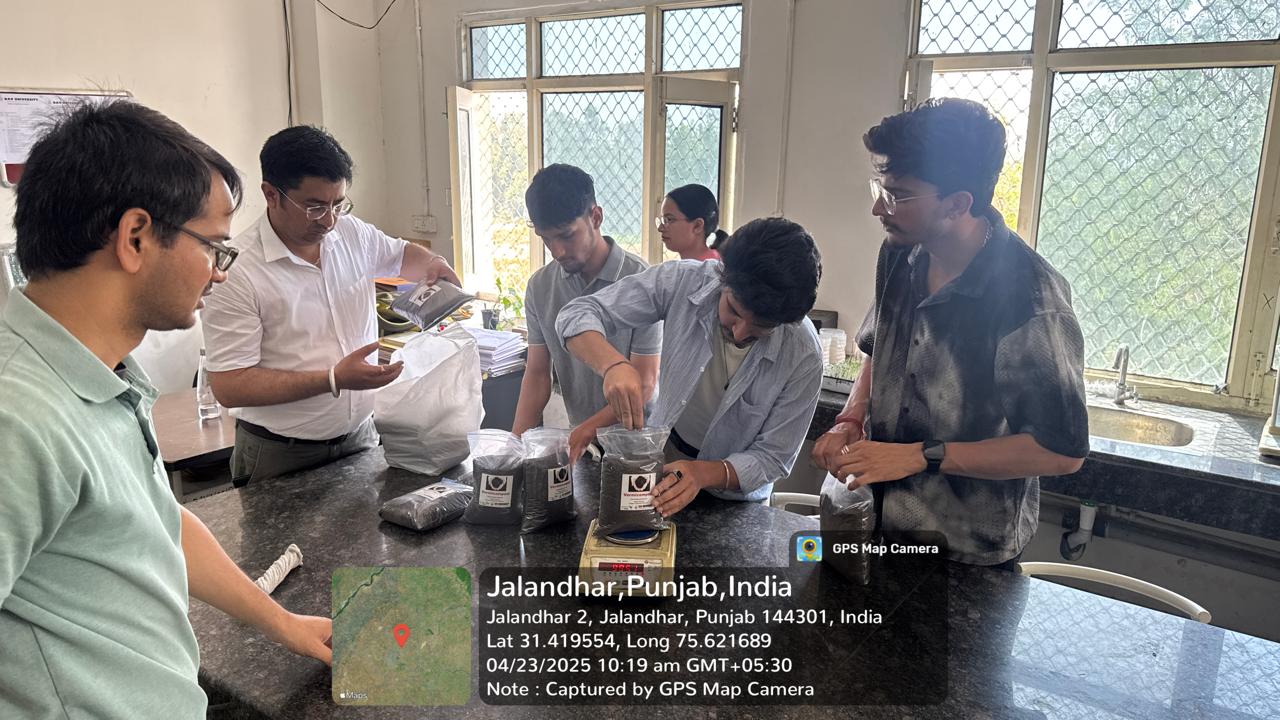
Students Packing Vermicompost
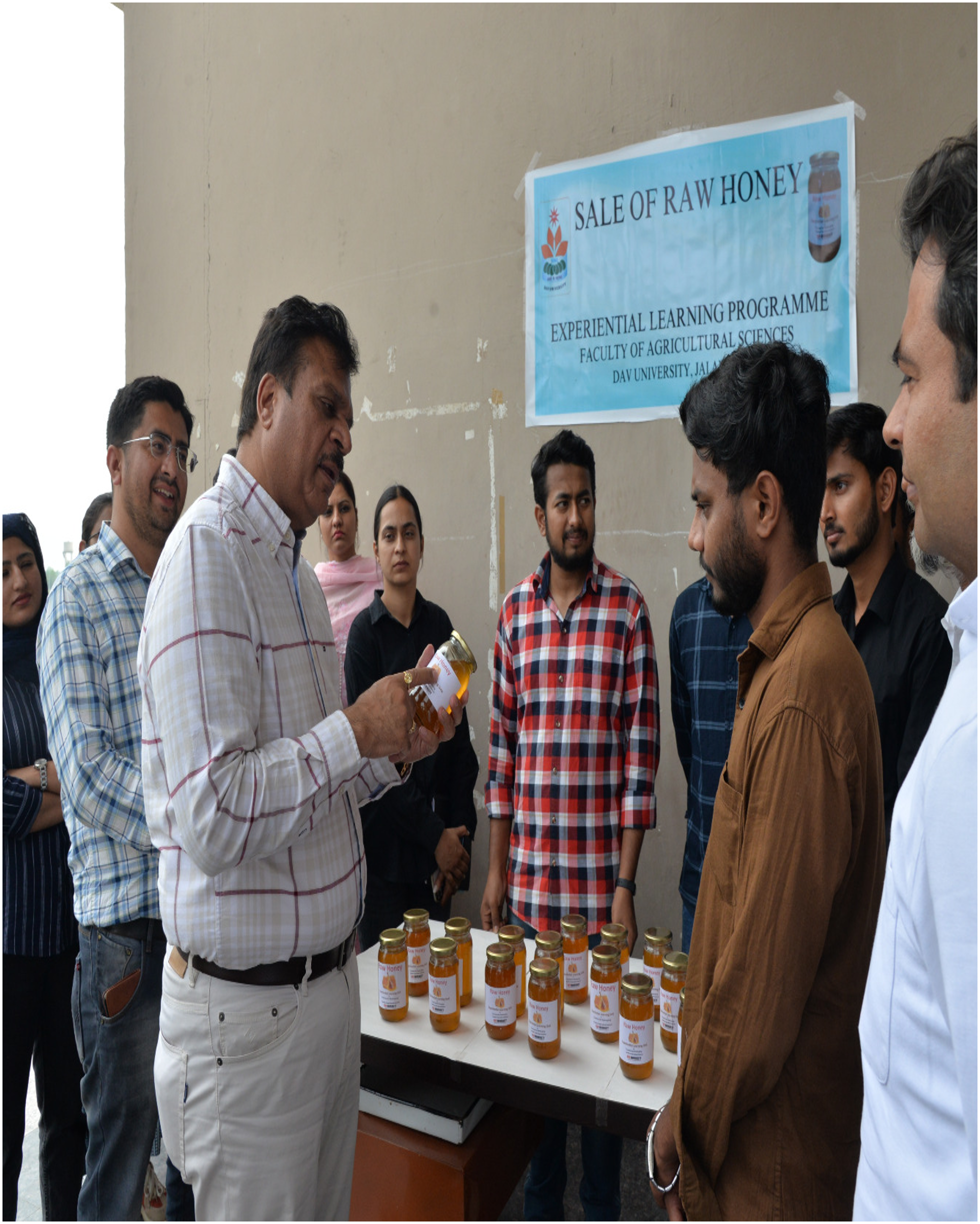
Students selling Honey